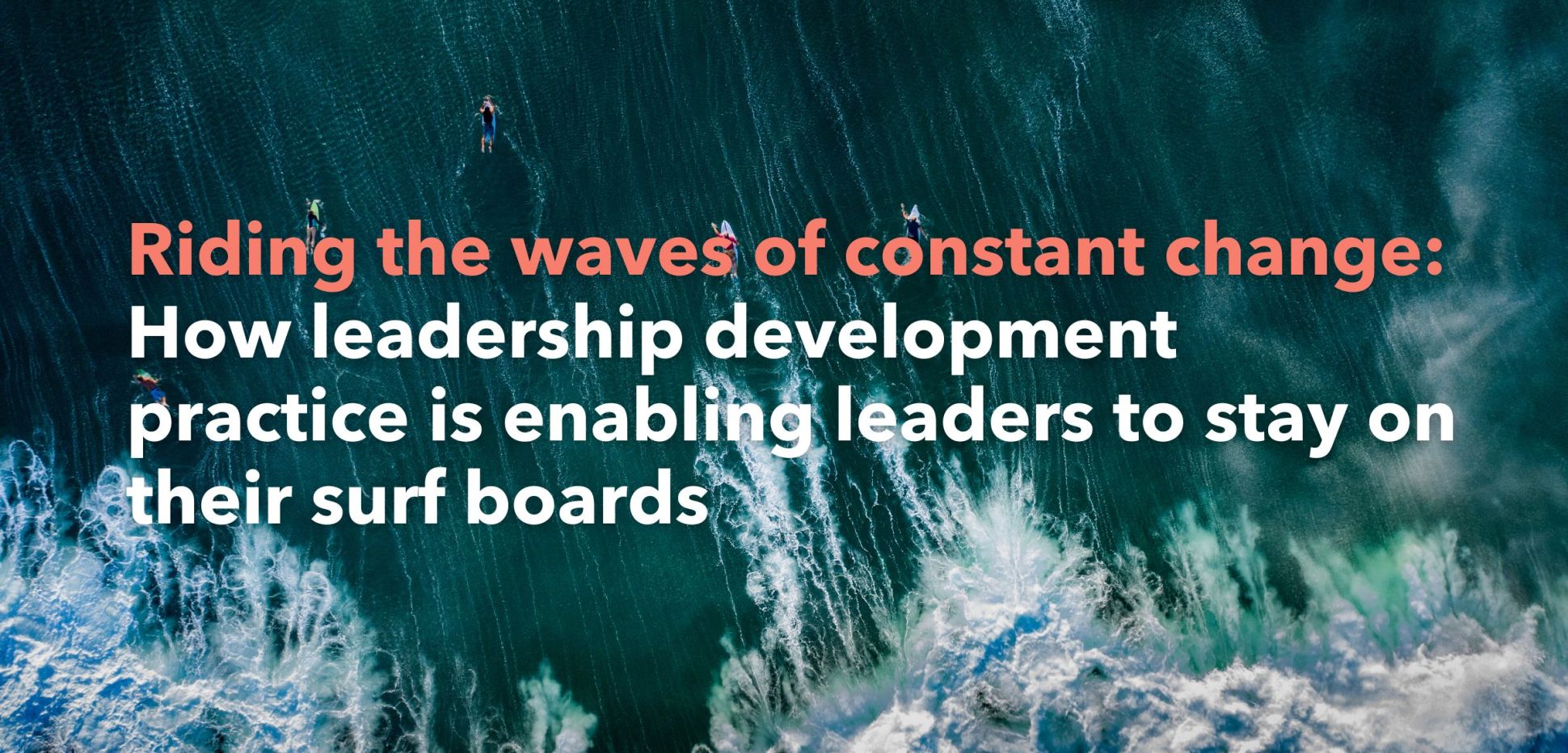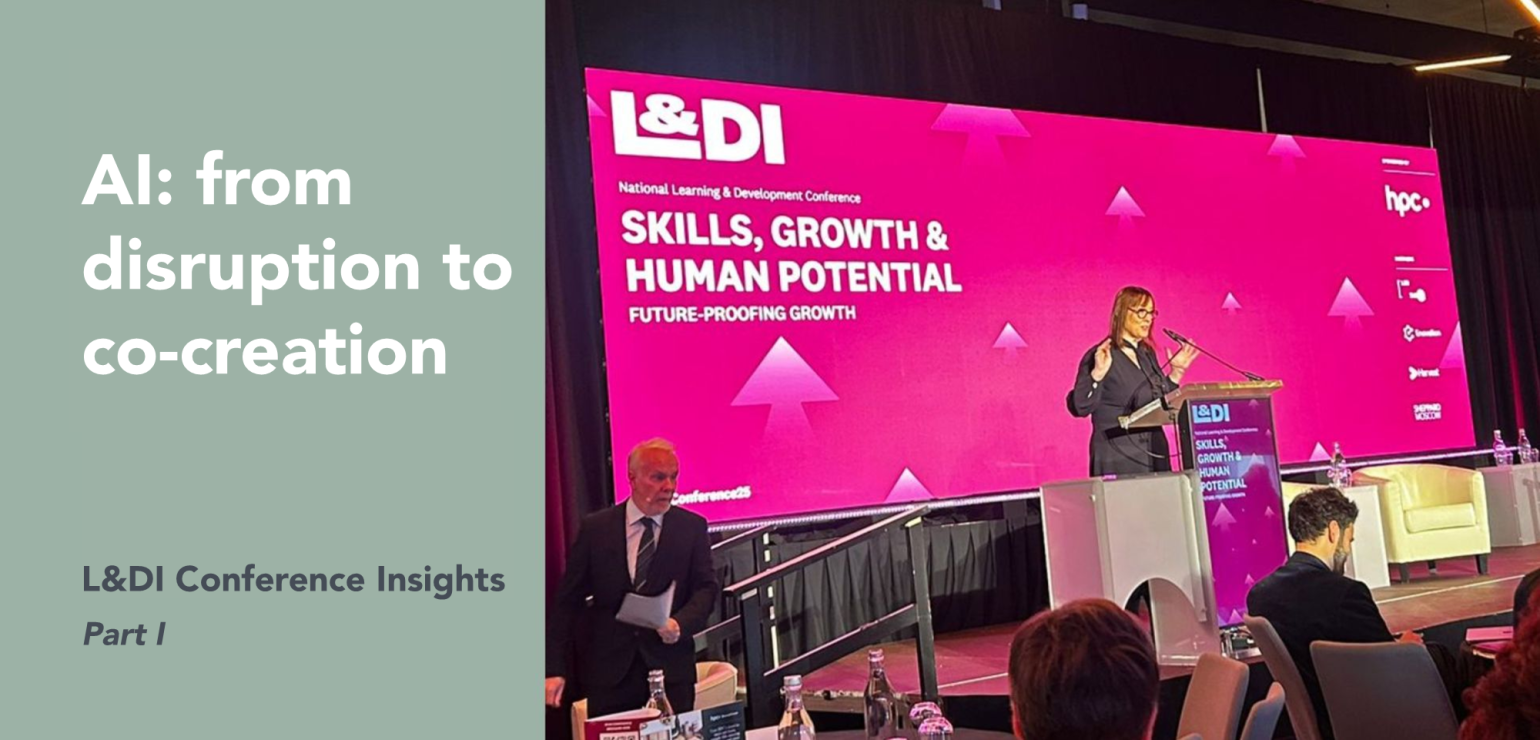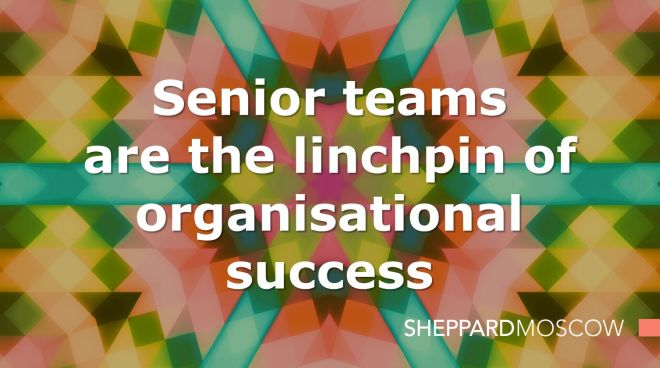Navigating change and turbulent waters

There is a rumbling in the water – whether leader, practitioner or none of the above, the rate of change as we look ahead is exponential. The momentum brought on largely by technological leaps in AI affects all parts of life and only reinforces the importance of our human connections.
Recently I have found myself following my curiosity to learn and reflect on these waves of change. After attending the European Mentoring & Coaching Council (EMCC) Ireland conference and the Learning & Development Institute (L&DI) conference I was gripped by three core ideas that simmered to the surface: how our current practice reflects cutting edge thought in the L&D space, the implications of AI (Artificial Intelligence) on the practice and delivery of learning and development, and how team coaching practice needs to get better at supporting and enabling neurodiverse teams.
1. Our cutting edge practice
It’s not all about the next new thing. Amy Edmonson, referred to by some as the ‘goddess of psychological safety, teaming and innovation’ and author of Right Kind of Wrong: The Science of Failing Well, was the keynote speaker at the L&DI conference. I was particularly struck by the way she framed experimentation as learning through ‘intelligent failure’, a product of high-quality bets. Essentially, this is about developing a well thought-through hypothesis derived from existing knowledge and collaborative, high-quality conversations. In much of our own practice as learning and development practitioners, experimentation is a key mechanism for enabling growth, change and innovation in the leaders we work with. Edmonson’s reframing of this idea tied together different elements of our existing practice – senior team cohesion, smart risk taking, high-quality conversations and organisational learning – and affirmed the rigorous approach we take in the leadership development programmes we run in organisations such as Vodafone.
“Smart risk-taking is often a team sport.” Amy Edmonson
The inclusion of psychological safety in discussions across both conferences reasserted its significance and prevailing relevance to the development of leadership capability at all levels. In a survey of Irish HR managers only 38% said they had confidence in their leaders to have sensitive conversations with their staff. It’s clear the imperative remains for practitioners to support leaders on how to approach such conversations in a compassionate and psychologically safe way. Edmonson offered some robust practical tips around helping leaders to listen, empathise, develop self-awareness and invite challenge to build psychologically safe environments and relationships, which again reinforced the tenets of work in leadership development.
2. AI isn’t going anywhere
Whatever industry you’re in, AI will be dominating the conversation. As ChatGPT celebrated its first birthday just a couple of months ago, everyone is looking ahead to see the opportunity offered by the maturing technology. In the world of leadership development it’s already making waves according to David Clutterbuck at the EMCC conference. He shared that AI technology is already being used in 1-1 coaching, providing coaches with real-time data on their coachee’s body movements and tone of voice, and providing suggested coaching questions and interpretations as to what they may mean. Sam Isaacson, fellow EMCC speaker, dropped the surprising nugget that a recent study found that an AI coach was more effective and impactful than a human coach. He predicts that digital coaches will soon live in our pockets as a phone app.
Am I worried? Not at all. These tools certainly provoke very important questions around data security, confidentiality, contracting, boundaries, biases and more. But if we address these issues with care and rigour the opportunities for enhanced learning and greater accessibility are exciting! Instead of erasing it, AI only emphasises how important the human heart/touch and felt experience truly are.
3. Neurodiversity in teams
Neurodiversity consideration is growing in the industry discourse, but Clutterbuck’s thoughts on the subject really gave me pause to think. First, he shared that diversity (in its broadest sense) is providing a constructive challenge to the practice of coaching. He described how many coaches are practicing in “competency-driven monocultures” where there is often little diversity between coach and coachee, thus reinforcing biases and implicit assumptions.
Take Systemic Team Coaching. Historically – and likely most often presently – neurodiverse team members are expected to flex their style to accommodate the prevailing thinking style of the team and/or its leader. Clutterbuck is seeing a rise in teams recognising diverse thinking and their need to adapt to accommodate their neurodiverse colleagues.
Reflecting on my own experience, I realise I have only worked with one senior executive team member who has openly disclosed and discussed their neurodiversity. Of course I have worked with neurodiverse people across my career, but rarely has neurodiversity in any of its forms (ADHD, dyslexia, dyscalculia etc.), been disclosed so openly. Raising awareness of our own biases, and the risk of inadvertently reinforcing homogenous thinking, is hugely important to the effectiveness and equality of systemic team coaching. We need to enable teams and organisational cultures that can flex to diverse needs in all their forms so that everyone feels included, heard and valued and that their contributions can be fully realised.
These three themes from the two conferences present incredibly compelling areas for development in 2024. From new technological frontiers to a better understanding of the role of neurodiversity on the development of organisational cultures there is so much space for growth and positive change.
As for Sheppard Moscow? We’re jumping on that surfboard and riding the wave. We aren’t waiting around for AI to happen to us, we are going to practice Edmonson’s high-quality bets and, in partnership with our clients, experiment with this incredible technology. AI is a brilliant tool to better help us focus on what’s important, the human systems and relationships at the heart of it all.
If you're curious and want to learn more about leading through transformation and change, check out our thoughts on large-scale transformation and how life sciences is taking on the race to innovate.

 Aoife Keane
Aoife Keane 

